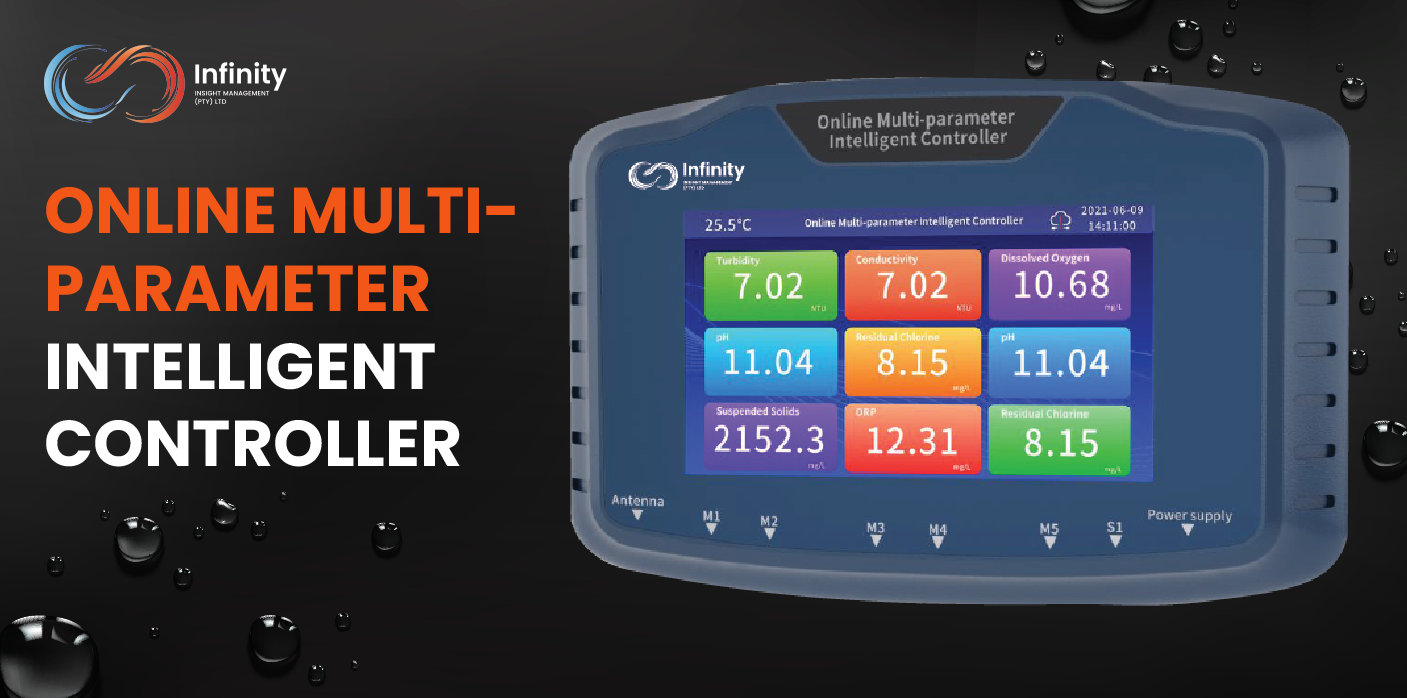Online Multi-Parameter Intelligent Controllers for Better Process Control
⬅ Back to Posts
In modern industrial and environmental applications, the demand for precise monitoring and control has never been higher. Online multi-parameter intelligent controllers meet this demand by offering a versatile, integrated solution for managing various parameters in real time. These advanced devices are transforming industries by enhancing efficiency, accuracy, and automation in diverse systems.
What is an Online Multi-Parameter Intelligent Controller?
An online multi-parameter intelligent controller is a device designed to monitor and control multiple parameters simultaneously in fluid systems. These controllers are equipped with smart sensors, communication interfaces, and automated features, enabling real-time data acquisition and control. Parameters such as pH, conductivity, dissolved oxygen, turbidity, temperature, and flow rate can all be monitored and managed with a single device.
How Do They Work?
- Sensor Integration: The controller connects to various sensors placed in the system to measure multiple parameters.
- Real-Time Monitoring: Continuous data from the sensors is processed and displayed on the controller’s interface.
- Control Algorithms: Built-in algorithms analyze the data and adjust system operations, such as dosing, heating, or flow control.
- Communication: Data is transmitted to central systems or cloud platforms via wired or wireless communication protocols for remote monitoring and analytics.
Key Features of Online Multi-Parameter Intelligent Controllers
- Multi-Parameter Capability: Simultaneously monitors and controls multiple metrics.
- Intelligent Automation: Features automated adjustments based on pre-set thresholds or real-time conditions.
- User-Friendly Interface: Touchscreens, graphical displays, and intuitive controls for ease of use.
- Data Logging: Records historical data for analysis, troubleshooting, and compliance reporting.
- Connectivity: Supports protocols like Modbus, Ethernet, and wireless communication for integration into larger systems.
- Robust Design: Built for durability in harsh industrial environments, often with water- and dust-resistant enclosures.
Applications of Multi-Parameter Intelligent Controllers
- Water and Wastewater Treatment: Monitoring pH, turbidity, and dissolved oxygen to ensure regulatory compliance.
- Aquaculture: Managing water quality parameters like temperature and salinity for healthy aquatic ecosystems.
- Chemical Processing: Controlling critical metrics for consistent product quality and safe operations.
- Food and Beverage Industry: Ensuring optimal conditions for processing, such as maintaining pH in fermentation.
- HVAC Systems: Monitoring temperature and humidity for efficient climate control.
Advantages of Using Intelligent Controllers
- Efficiency: Streamlines monitoring and control by integrating multiple functions into a single device.
- Accuracy: Provides precise data for better decision-making and system optimization.
- Cost Savings: Reduces the need for multiple standalone instruments, cutting installation and maintenance costs.
- Automation: Enhances system performance through intelligent, automated adjustments.
- Scalability: Easily integrates into larger systems for centralized management.
Challenges and Limitations
While these devices offer numerous benefits, some challenges include:
- Initial Cost: Higher upfront investment compared to single-parameter controllers.
- Complexity: Requires skilled personnel for installation and configuration.
- Maintenance: Multiple sensors and components may demand more frequent calibration and upkeep.
Selecting the Right Controller
When choosing an online multi-parameter intelligent controller, consider:
- Parameters to Monitor: Ensure compatibility with your specific application requirements.
- Scalability: Opt for models that support future expansion or additional sensors.
- Durability: Choose devices with robust designs for your operational environment.
- Data Integration: Look for advanced communication features for seamless integration with existing systems.
Future Trends in Multi-Parameter Controllers
The evolution of technology is driving new trends in these controllers, such as:
- IoT Integration: Enabling real-time remote monitoring and predictive maintenance through the Internet of Things.
- AI-Powered Analytics: Leveraging artificial intelligence for enhanced decision-making and system optimization.
- Energy Efficiency: Incorporating low-power components and smart algorithms for sustainable operation.
Online multi-parameter intelligent controllers are indispensable in modern process control, providing a comprehensive solution for monitoring and managing complex systems. By integrating advanced features, automation, and connectivity, these controllers empower industries to achieve greater efficiency, reliability, and sustainability.
Investing in the right intelligent controller can revolutionise operations, improve productivity, and ensure compliance with industry standards, making it a critical asset for businesses aiming to stay ahead in a competitive landscape.
